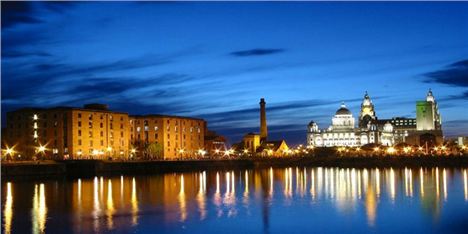The Russians are coming …. as well as the Brazilians, the Chinese and people from the sub-continent of India.
Anyway, that’s the hope of Liverpool City Region’s Local Enterprise Partnership in its business plan for the coming year, announced yesterday.
The LEP wants to develop a “BRIC” (that’s Brazil, Russia, India, China) promotional strategy to boost tourism to Liverpool and Merseyside from those four world growth areas. All are seen as potentially large and rapidly growing markets.
So can Liverpool compete as a tourism hotspot compared with the Kremlin, Mardi Gras, the Taj Mahal and the Great Wall of China?
The LEP thinks so, citing Liverpool’s cultural and tourism “offer” as the largest in England outside London.
And the “attack brand” is culture, sport, heritage and music supported by the city region’s reputation as England’s golf course.
The business plan wants to see high-profile marketing and promotional campaigns, both nationally and internationally to increase audience awareness of what is on offer on the banks of the Mersey.
The plan also seeks to strengthen Liverpool Convention Bureau to attract more big events to the area, particularly international conventions and exhibitions.
There is also an aim to support the development of a major events programme, with more international music and river festivals, to attract more international visitors.
 GolfWhy is tourism important? The LEP points to the 42,000 jobs already supported in the sector, the £3bn generated from tourism to the local economy and the 55m annual visits to Liverpool City Region.
GolfWhy is tourism important? The LEP points to the 42,000 jobs already supported in the sector, the £3bn generated from tourism to the local economy and the 55m annual visits to Liverpool City Region.
So will this mean teams from the LEP swanning off to the likes of Moscow, Beijing, Rio de Janeiro and New Delhi to sell Liverpool?
It seems not. More likely the LEP with work with the UK Government's own Visit England and international trade agencies, as well as with local tourism entrepreneurs heading to BRIC countries. The economies of those four countries are improving with more citizens having disposable incomes, and eager to travel.
The annual plan also outlines ways of boosting business activity in the area, aiming to secure an International Trade Expo in Merseyside in 2014.
Liverpool Local Enterprise Partnership is a sub-regional successor to the former NWDA (Northwest Regional Development Agency) scrapped by the Government.
It's is being run by the one-time Mersey Partnership, based in the TMP's waterfront base at Princes Dock.
The LEP's business plan was unveiled to an audience of more than 400 people from Merseyside's business and political worlds.
It has highlighted an ambitious prediction that by the year 2020 at least 100,000 new jobs will have been created, spanning a wide range of sectors from pharmaceuticals, to tourism, port and maritime, and auto to research and development.
 Robert HoughThe grim reality for Merseyside is that without intervention, the city region's underperforming economy will continue to lag behind the UK.
Robert HoughThe grim reality for Merseyside is that without intervention, the city region's underperforming economy will continue to lag behind the UK.
But with an action plan Merseyside, by the end of the decade, can actually surpass national growth, becoming £4.4bn wealthier than now. If the dream becomes a reality things will be even better – with the city region becoming a platform to accelerate economic growth across a wider Atlantic gateway.
Strong words, but achievable according to Robert Hough, the executive from Peel, who is chair of the LEP.
He says: “No other LEP possesses the private sector influence that our 450 members offer. It is with this strength that we can look to expand and grow our economy.”














